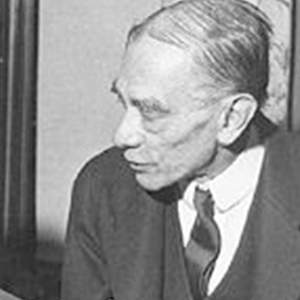Louis McHenry Howe was one of President Franklin D. Roosevelt’s earliest and closest political advisors, supporting his political career all the way to the White House. The New York Herald Tribune described his dedication to the Roosevelts, stating: “His loyalty is not to himself, or to an abstract ideal of government, but solely to Franklin D. Roosevelt.”
Early Life
Louis McHenry Howe did not have the appearance of powerful political operative. From an early age, he suffered from a range of health issues, including asthma and a heart condition. When Howe was born in 1871, his family was one of the wealthiest in Indianapolis, Indiana. However, a series of financial losses forced the family to move to Saratoga, New York.
After his father purchased a local newspaper, Howe became a reporter. He established a successful journalism career freelancing for the New York Herald. After covering New York politics for several years, he became involved in it himself. In 1906, Howe started working as a political advisor for Auburn, New York, Mayor Thomas Mott Osborne. After being fired three years later, he returned to journalism. Howe met FDR in 1911 while covering his fight to loosen Tammany Hall’s hold over the state senate.
Advisor to FDR
Howe was convinced that FDR was destined for the White House after just one meeting. “I was so impressed with Franklin Roosevelt… his seriousness, his earnestness, his firm dedication to his cause, that from that moment we became friends — and almost at that very first meeting I made up my mind that he was Presidential timber and that nothing but an accident could keep him from becoming President of the United States,” he wrote.
Howe ultimately helped Roosevelt win his election to the New York Senate, and when FDR became Assistant Secretary of the Navy in 1913, Howe served as his chief of staff. When polio threatening to derail Roosevelt’s political aspirations, Howe served as his liaison to the public and helped relaunch his political career with his “Happy Warrior” convention speech in 1924.
Once FDR was elected President, Howe was a grounding force and often played the role of the “no” man to FDR’s less practical initiatives. The press was often unflattering, critical of both his “ghoulish” appearance and his apparent power over the President. Howe responded by creating business cards with the title, “Colonel Louis Rasputin Voltaire Talleyrand Simon Legree Howe.”
Howe played a key role in many of the early New Deal programs. However, he died before the end of FDR’s first term in office in 1936.
Relationship with Eleanor
Howe also directed Eleanor Roosevelt’s public life. When FDR was campaigning for President, he recognized her value and sought out to provide a comprehensive political education. He also helped her master the art of public speaking. Once Roosevelt was in office, Howe encouraged Eleanor to expand the role of First Lady, suggesting that she conduct women-only press conferences and become a vocal supporter of certain issues, such as women’s rights.








